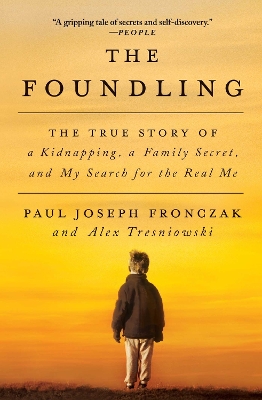In 1964, when Paul Fronczak was 1 day old, he was kidnapped from the maternity ward of a hospital in Chicago. Fourteen months later a child was found abandoned in New Jersey. Very limited scientific tests were available at the time to determine paternity. All the FBI could say was that they could not rule out the possibility that the child found in New Jersey was Paul Fronczak. So they gave this child to the Fronczak family and considered both cases closed.
When he was 10 years old Paul found a box of newspaper clippings about his kidnapping case. He had never heard about it before. His parents refused to discuss it with him - ever. He grew up feeling like he didn't really fit into his family. He wasn't anything like them.
Then in his forties he decided it was time to investigate. He took a DNA test and convinced his parents to submit samples too. They later withdrew their consent but he sent their samples in anyway. This proved that he was not their biological child. Now he set out to answer two questions.
Who was he?
What happened to the real baby Paul Fronczak?
This book is a masterclass in the abilities and limitations of DNA analysis. It investigates the possibilities opened up by databases on the major genealogical websites to answer long standing family mysteries. (This happened in my husband's family.)
What was fascinating to me was the reactions of the people around Paul during his search. They did not want him to find out the answers to his questions. I don't understand that at all. His parents and brother cut all ties with him. If your child was kidnapped, wouldn't you want to know what happened to him? Wouldn't you want to know the truth about the child you raised? I don't see why it would make any difference in your relationship to each other.
His wife wanted him to stop searching. I understand that it was taking up a lot of his time but how could you expect someone not to want to follow the clues he was getting? Maybe I just hate an unsolved mystery so much that I wouldn't have been able to let it go. I can't understand people who are insisting that you walk away from it.
Reading about his birth family may be hard for some people. A family situation that ends with dumping a toddler outside a department store is not going to be healthy and functional. There is a lot of abuse described.
He met so many fascinating people along the way. There were volunteer researchers who worked on his case. He met distant relatives identified through DNA who dug into their own family histories to try to find a link to him. He met other abandoned children who hoped that they would turn out to be the missing Fronczak child.
The book is not able to give definitive answers to all the questions that it raises but he does have a pretty good idea of what happened in his life and the life of his parents' biological child at the end. I would recommend this book to anyone who loves genealogy and the science of genetic genealogy to see how it works in real life.This review was originally posted on Based On A True Story
